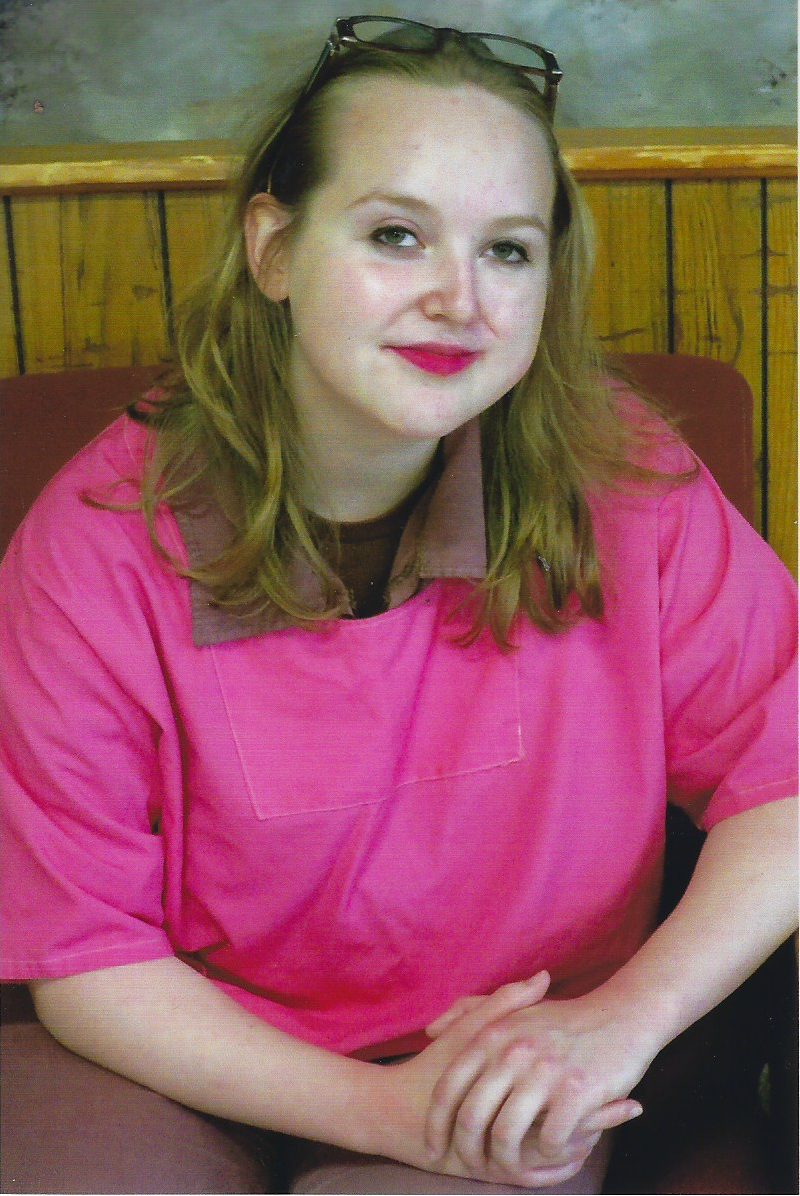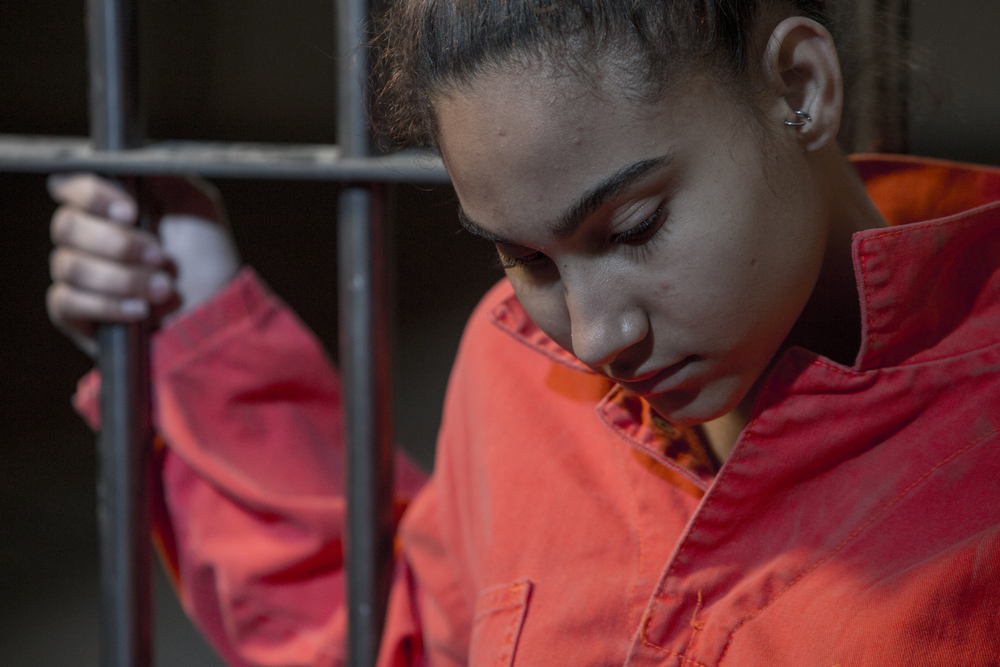Very recently, Brenda “Sonny” Baker died of cancer. It was a coup de grace many of us incarcerated women at the State Correctional Institution in Muncy, Pa., did not see coming — in fact, few of us even knew the severity of her illness. Brenda bravely kept the grisly details under wraps so that she could put on a courageous front for the women she was serving time with; sparing herself from what she deemed to be unnecessary pity and attention.
Though I haven't known Brenda for decades the way many of my peers have been privileged to know her, the few years I have been in Muncy so far have given me the opportunity to witness the brilliance and radiance of her indomitable spirit. Both the immediate prison community of Muncy and society have suffered a major loss with Brenda's tragic passing.

Jamie Silvonek
The prison has lost one of those role models who are part of their most stable, productive and helpful population: lifers, or those sentenced to life without the possibility of parole. Lifers and their positive, stabilizing role in the prisons where they are confined have long been studied by academia.
Now society has lost the chance to welcome home a rehabilitated, redeemed woman. So many will never benefit from the wisdom of her experience, which warns against the kind of lifestyle and decision making that climaxed with her life sentence.
Brenda's death is also devastating for the community of lifers and long-termers in Muncy, where losing a peer is losing family. While serving long, draconian, insurmountable sentences together, people tend to gravitate toward those who can truly understand the feelings of guilt, anger, confusion and hopelessness. Lifers and long-termers in prisons like Muncy become closely knit communities, alliances and families. A notable quote from one of my role models who is a lifer at Muncy is: "I don't have to like you to help you."
We support each other
This sentiment — effectively expressing the ability to show others compassion and tolerance in spite of disagreement or dislike — is one of the underlying philosophies driving Muncy's lifers and long-termers forward in solidarity. As a large group of incredibly diverse individuals, we may not all always get along or agree but we will always support and empower one another, and desire more than anything to see each other free.
It is collective encouragement and unity that creates a successful movement — a truism many of us incarcerated activists keep in mind in our fight against abolishing life without the possibility of parole and other severe, inhumane sentencing schemes.
Brenda's death serves as a reminder of the inevitable or the highly probable for those of us serving life or decadeslong sentences. Here in the commonwealth of Pennsylvania, life without parole means certain death unless a compassionate governor grants you commutaton, the laws change or you are able trump the bureaucratic, unreasonable, morally bankrupt and emotionally indifferent appeals courts, including the Pennsylvania Superior and Supreme courts.
Generally, your sentence sticks like thighs to leather on a summer day in Central Pennsylvania, regardless of how unjust it is, as most sentences are. Yet another unfortunate but inescapable reality of our nation's broken and corrupt criminal justice system.
When amazing women like Brenda die, it fills the rest of us with a kind of cold, gripping fear and the thought: "Am I next?" Even youthful, vibrant long-termers like myself are not immune to its icy clutches. I can't help but feel panic with every symptom, sports injury and random missed period because self-care can't always save you in an environment such as this. Here in the prison system, the medical care system is the funniest deadpan not-actually-a-joke of all. The prison's incorrect diagnoses and occasional refusal to treat serious illnesses will kill you before old age or your sentence will.
A different death sentence
Those incarcerated people who do not have knowledge of the medical field or the ability to learn have the cards stacked against them. Around here, most of the diagnosing is done by us incarcerated individuals. We then inform incompetent and indifferent medical staff of our maladies. Is this a safe or proper procedure? Of course not, but then again, nothing about Muncy is what society would deem to be safe or proper.
Since Brenda's death, talk around the prison is that she had been complaining of issues to the medical department for a while until staff finally realized what was killing her. This time, the death sentence was not imposed by Man, but by nature, genetics, chance.
Just like middle and high school, college and the workplace, prison is a rumor mill. I mostly dismissed the lurid gossip that Muncy's medical department essentially let her die; Brenda's intellect and spitfire personality would never allow anyone to write her off, especially not an institutional medical department. However, community fodder did get me thinking.
What if better, more preventative and proactive health care across the Pennsylvania Department of Corrections could have postponed her death, giving her the chance to pursue commutation and aid us in the fight to pass progressive legislation? What if Brenda could have hung on so that she could see the positive systemic change we are trying to galvanize?
It can be tempting to give up hope, to stop fighting these sad times when we lose beautiful souls like Brenda. But we must continue to champion the causes we are so passionate about, believe in so ardently even without Brenda's tinkling laugh and scintillating smile. We'll keep Brenda's legacy alive as well as of those who came before her until the criminal justice system represents true justice. The justice that doesn't steal eyes and teeth in retribution, but seeks to repair, amend, make things whole again.
Jamie Silvonek was sentenced to 35 years to life in Muncy, Pa., at 14 for first-degree murder in her mother’s homicide. Now 17, she is looking forward to starting college through Ohio University’s correspondence program after graduating high school around April 2019.

Sorry for your loss you are amazing person
Loved the article. Have two obits for her, from friends, in next issue of Graterfriends (PA Prison Society newsletter written for and by inmates). Is one of these photos Sonny? Could we print it in our newsletter?
Jamie,
I am really proud of you. I am sure Brenda was a loving kind hearted person.
She deserved much better . What a courageous woman and role model.
Love you
Your father
Jamie,
I am really proud of you. I am sure Brenda was a loving kind hearted person.
As humans all of us are capable of making a tragic decision that alter their lives forever.
Some are made from people seeking to fuel their addictions others have underlying mental illness. Some while under the influence or control of others.
It’s what that person does after the tragic mistake that eventually defines them as a person.
Surely after all those years Brenda deservesd better. Better medical care may have saved her. It was not the actual prison’s fault it’s the system. More effort has to be put into rehabilitation for re-entry for everyone.
What a courageous woman . Such a powerful role model to everyone up there. Yes Muncy and the community suffered a great loss.,
I love so much and I am proud of your efforts to hopefully someday reform the broken system.,
Your father David
Thank you for sharing Brenda’s and your story with us. I am so sorry for your loss. Our system is broken in so many ways it is often overwhelming where to put energy, time and money. I’d like to think that I do what I can to make a difference in this broken world. I do want you to know that I read this, I hear you and I wish you strength, courage and hope that you find peace. You are not forgotten.
I happened to be a inmate at Mindy many years ago. The things I’ve seen and saw was just heart broken. Brenda Baker was like a mother to me I have wrote her over 30 years and if I had known the situation I would have got on it. She never told me and I’m torn to pieces just cannot stop thinking about her only if the system would had gave her a chance. I love her and misses her dearly she will never be forgotten. She is my Legacy
It is sad to hear Brenda’s story .the sad and worst of it is every prison female or male dont get the right medical treatment unless they have family who will stick to calling whoever they need to call to get justice not just for there loved ones but the other that follow or dont have an outside speaker or like myself a loved one who wants they’re loved one healthy the way we are .. it breaks my heart that Brenda’s family had to go throuh losing her u hope that they were able to say there last goodbyes and she didn’t go alone..sorry for my long comment but this really hurts my heart.. God bless Brenda’s soul and her family may she rest in paradise….
What a moving story I happened to have been an inmate at Sci munch and wathched several woman die due to their lack of not having tharight medical staff! Many prayers for this young lady and her family because that is a cold and lonely place to go